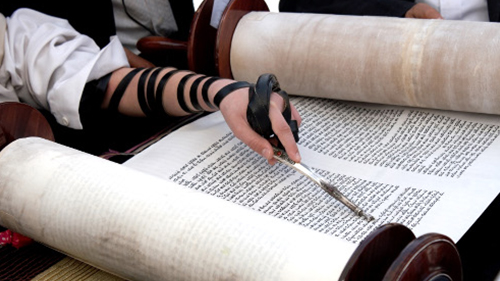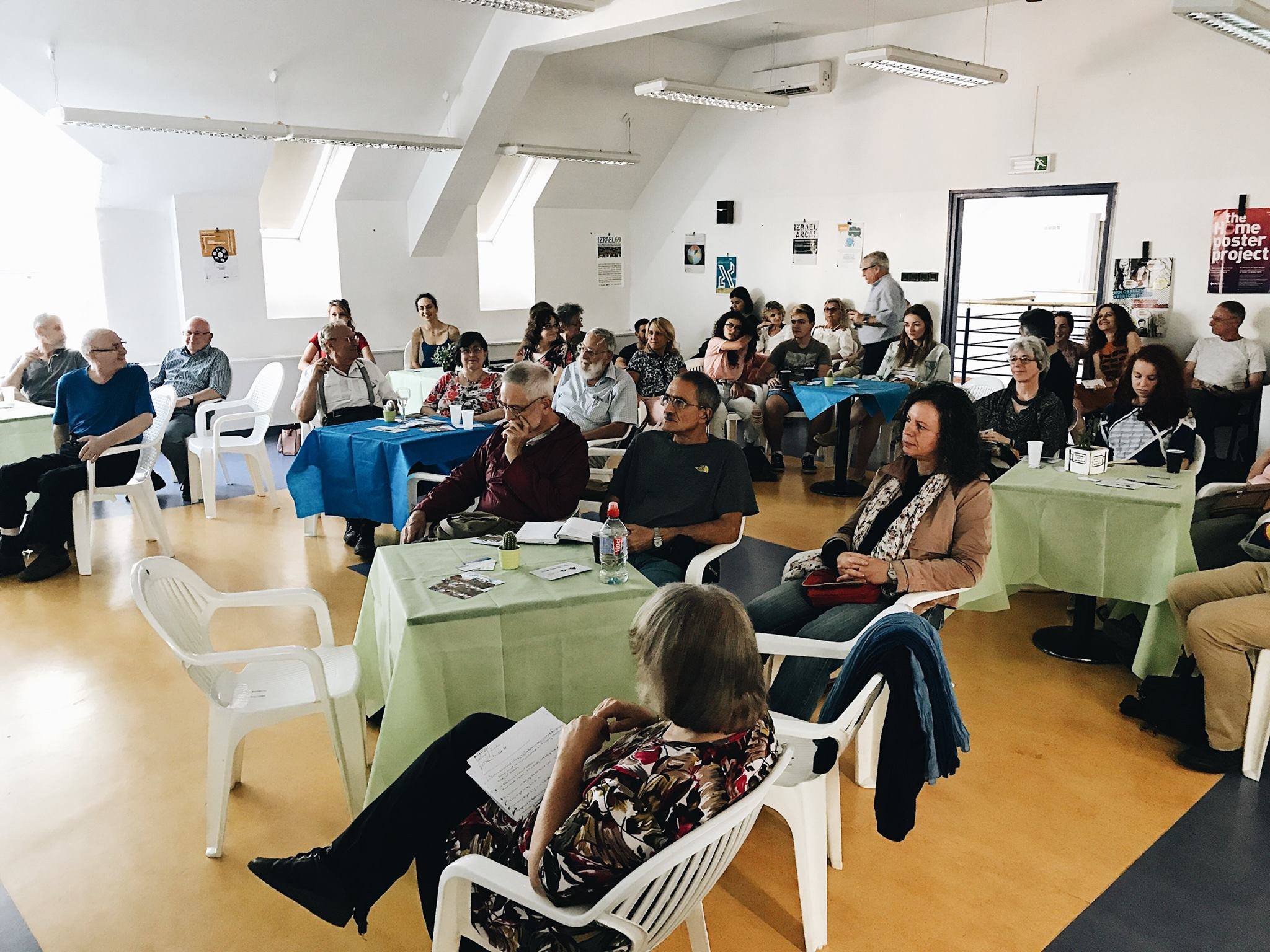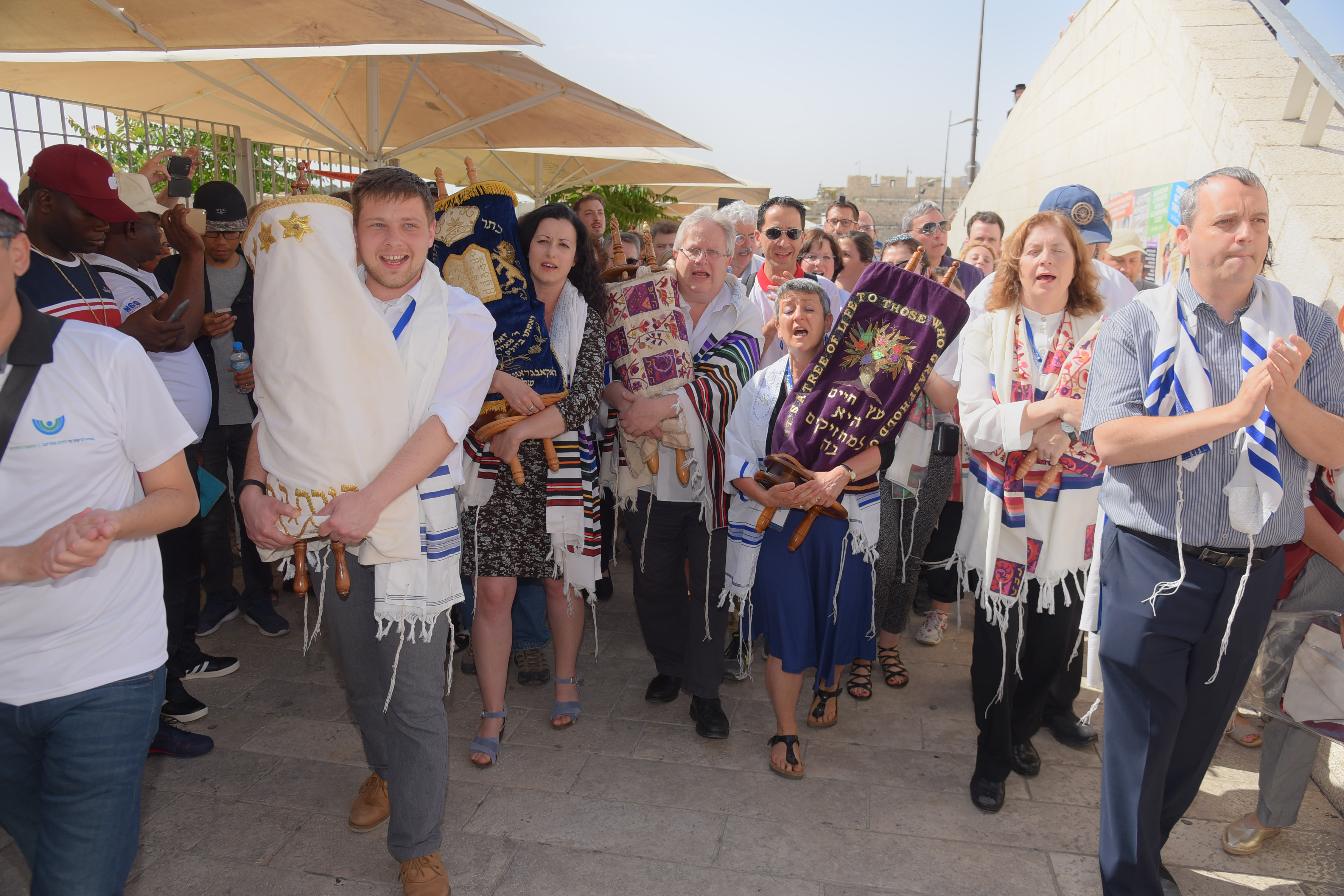
The Torah portion this week is titled Noach. It covers from the time of Noach, through the narrative of the Tower of Babel and then it lists a series of names ending up with Abraham and Sarah. The greatest amount of space in this section, in fact several chapters are devoted to Noach and the Flood. I would suggest that there are two matters that are take home lessons in these multiple verses.
The first point is that when Noach is introduced to us he is termed “a righteous man” – in Hebrew a tzadiq. The Torah then says, he was blameless in his age.
Hundreds of years later, after the close of the Bible’s covers, the early rabbis pondered what this meant. Yes, he was righteous. Yet, they ask, was he truly righteous, or was he righteous only in comparison to his age? In short, would he be considered righteous today, or was he only the best example of a pretty miserable lot of people? Was the bar set so low that he looked good, or even very good, but his contemporaries were so awful that his righteousness did not set a very high standard?
A special event by Arzenu Hungary, the local Zionist organisation of the Reform movement, and the Israeli Cultural Institute was many months in the making. Erika and Tamas from Arzenu invited two outstanding presenters, educators from the unique Arava region of Southern Israel to offer a glimpse of the amazing intellectual capacity, wonderful green projects, research and entrepreneurship thriving in this wild and beautiful, remote desert landscape.
On September 19, while visiting New York to speak at the United Nations, Israeli Prime Minister, Benjamin Netanyahu, accused the Reform and Conservative movements in Israel of using their partnership in the Western Wall agreement as a clandestine way to gain recognition. The World Union, along with its regional affiliates, responded to his charges with the following statement.
Then the telephone rang, and I heard the most heart-breaking news: the night before receiving some important examination results, the child of an old school friend had just taken their own life. When disease or adversity threaten our lives, we humans fight with such fortitude and tenacity. How could life have become so dreadful that this young person felt that the only way to deal with the pain was to make a permanent exit? How could they feel so alone and unheard? How could they choose death?
In Ki Tavo, we join the Israelites on a journey towards a special location, to be chosen by God, in the land in which they were going to settle. They would bring a vat filled with the first fruits to the Cohen on that spot, to be laid before the altar of God, and recite a declaration, seen in verse 5 of our sidra, in words that might be familiar to you, “arami oved avi…a wandering Aramean was my father.” We also recite those words at the beginning of the maggid, the lengthy section of the haggadah, when we sort of tell the story of pesach.
Every year in the United Kingdom, 18 millions tonnes of food end up in landfills. Approximately, one-third comes from the producers of the supply chain, one-third from retail, and one-third from households. It costs the country 23 billions British Pounds every year. Either we produce too much food, or we do not eat it on time. On the other hand, one-fifth of the population is struggling with “food poverty”, that means that more and more people are eating poorly, unhealthy food, process food, or simply not enough food, or are relying on charities to obtain food. These figures apply to the United Kingdom, but the same pattern is true in all the developed countries all around the world. Today, we find ourselves in a paradoxical situation: we live in a populated world (some say over-populated), where technology makes it possible to feed each and every one of us, and yet, people are still struggling to have enough food, or to have proper nutritious food.
What does it mean to be part of a global Jewish community? For many of us, the concept can be difficult to truly grasp. My father, sisters, and I recently had the chance to understand a little more about it, though, during our recent visit to the Progressive/Liberal Jewish Community of Amsterdam (LJG) when we met in […]
In accordance with protocol, Carole Sterling as chair empaneled a resolutions committee to spearhead the process of requesting, formulating and editing possible resolutions to be introduced before the IA at the meeting on 17-May 2017, at 14.00-16.30, in Jerusalem, prior to the opening of CONNECTIONS 2017. The committee was chaired by Philip Bliss of Australia, […]
After a lacuna in the Torah text of thirty-eight years, the narrative resumes once again in Parashat Chukkat, Numbers chapter 20 verse 1, with the death of Miriam. What do we know about Miriam? First: Big sister (unnamed), she helps her mother to save her baby brother, whose life is threatened by the Pharaoh’s decree […]
“When you set the lamps, let the seven lamps give light at the front of the lampstand” (Bamidbar 8:2). Aharon has been told by God to place the golden menorah in the Mishkan in such a way that the light will shine to the front. Aharon could have made the angle of the menora so […]




